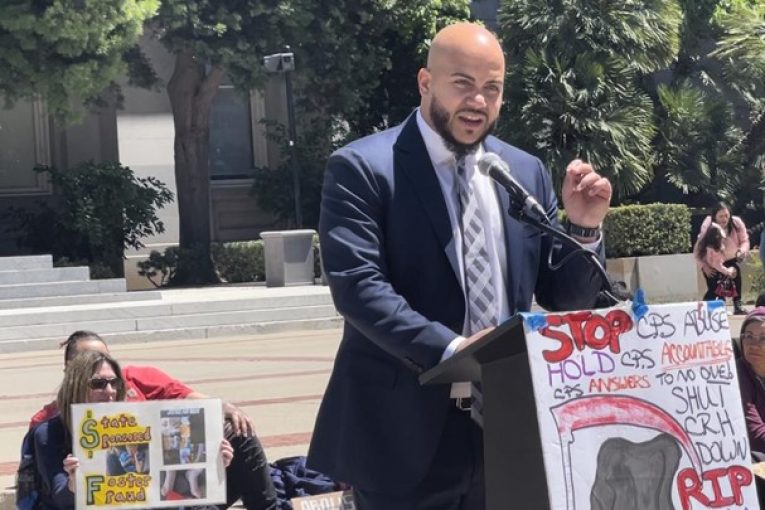

By Robert J Hansen
Sacramento, CA – Governor Gavin Newsom signed a bill into law last month that would limit county child welfare agencies (CPS) from seeking child support from parents.
Assembly Bill 1686, authored by Los Angeles state Assemblymember Isaac Bryan, encourages counties to avoid seeking child support payments from parents whose children are in the child welfare system.
Michelle Chan, a founder of California Families Rise, lobbied for the bill with impacted parents in the months leading up to the bill being signed into law.
California Families Rise is an advocacy organization that represents and lobbies for child welfare system-impacted parents and family members.
“All of the parents that came and supported made a difference,” Chan said. “This is a mess from the California State legislature and the Governor that our needs are being listened to,” Chan said.
AB 1686 states that “… when the county child welfare department determines that it is not in the best interest of the child to seek a support order against the parent, the county child welfare department shall refrain from referring the case to the local child support agency.”
This law is not binding, meaning that to seek child support from parents, the county must prove it is not a burden to the parents or unnecessarily extends the child’s time in the welfare system.
Research shows that for every $100 parents pay towards foster care costs, their child’s duration in care lengthens by about six months.
The effects are especially pronounced for Black families and as you are likely aware, Black families are dramatically over-represented in California’s child welfare system.
Assemblymember Bryan said that current practice exacerbates poverty and reduces the likelihood of positive family outcomes.
“Part of what we’re doing as state legislators is to stop this punishment and criminalization of poverty,” Bryan said via telephone.
According to a legislative analysis of the bill, more than 14,000 parents whose children have been removed to foster care are required to repay the cost of their child’s stay in care.
“What this means for impacted families is that there is going to be a new barrier to counties for trying to collect this money,” Bryan said.
The analysis states that “these financial burdens place a heavy toll on families.”
Bryan said that because of AB 1686, the federal child welfare authorities no longer demand that counties make the parents pay child support.
“They’ve changed the rules altogether,” Bryan said. “They’re working to codify it in legislation.”
The Department of Child Support Services argued that millions of dollars would be lost as a result of a decrease in child support payments.
“While the exact impact of the reduction is unknown, an assumed reduction in child support collections would result in a loss of approximately $4.24 million ($1.44 million General Funds revenue) in annual collections.
Bryan argued that counties only recover 27 cents of every dollar that they tried to collect and essentially are wasting resources doing so.
“In effect we’ve lessened the financial burden on struggling families, increased the likelihood of children reunifying with their parents and we save the counties money,” Bryan said.

